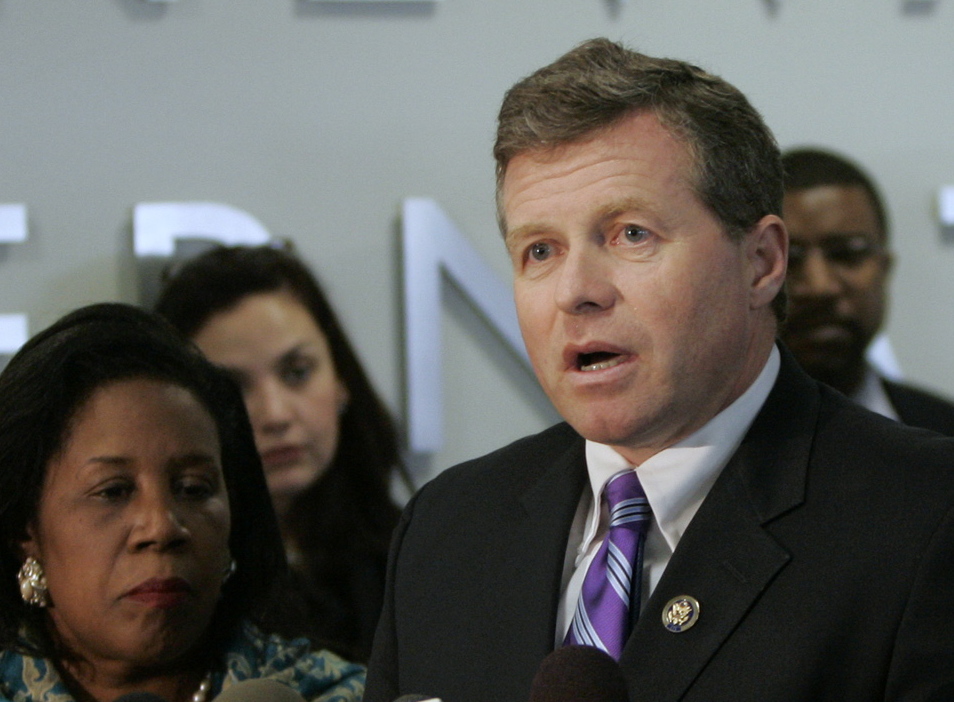A significant contingent of women and moderate members of the House Republican Conference prevailed Wednesday, convincing GOP leadership that the political blowback for voting to ban abortions after 20 weeks could far outweigh any favor curried with the anti-abortion base of the party.
It wasn’t clear Thursday whether the decision to swap out the “Pain-Capable Unborn Child Protection Act” for less controversial legislation to prohibit taxpayer funding for abortion services signaled a permanent shift back toward the middle for House Republicans.
But for one day – the same day thousands of anti-abortion protesters converged on Washington, D.C., for the annual March for Life – GOP moderates held sway.
The Republican centrists had, for the past week, been pushing leadership to reconsider its plan to bring the bill up, or at least amend the measure’s exemption clause.
The original text would only have allowed a woman to have an abortion after the 20-week threshold in a case of rape, incest or danger to her life – with the caveat the woman would have to report the rape to the authorities first. Reps. Renee Ellmers, R-N.C., Jackie Walorski, R-Ind., and others argued it was an unfair burden, especially given statistics showing that the majority of rapes go unreported.
Ellmers, the chairwoman of the Women’s Republican Policy Committee who has a history of pushing male colleagues to be aware of how their actions could alienate voting bases of women and young people with whom they hope to make electoral gains, suggested bringing the Pain-Capable Unborn Child Protection Act to a vote was ill-advised. She removed her name from the list of co-sponsors, even though she said on Facebook she was prepared to vote for it.
In the lead-up to the vote on the bill to ban taxpayer funding for abortions, Ellmers, Walorski and other Republican women who opposed the original legislation made themselves scarce to reporters waiting for interviews outside the chamber, eager to ask whether they felt gratified that their efforts had paid off.
an inauspicious start
Another opponent, Rep. Charlie Dent, R-Pa., chose not to explicitly gloat, but said he wasn’t surprised Republican leaders had listened to members’ concerns.
“They had four options here,” Dent said of party leaders. “The first option was to run the bill as is with the problematic exemption language. Two, take out the exception language and just leave in life of the mother. Three, put in the traditional … language: Rape, incest and life of the mother. Or four, pull the bill. The only option that made sense was pull the bill because every other option would not get the votes you needed to secure passage.”
For Dent, the episode does not bode well for the immediate future of the Republican majority.
“Week one we had a speaker’s election that didn’t go as well as a lot of us would have liked. Week two we got in a big fight over deporting children, again something that a lot of us didn’t want to have a discussion about. Week three we’re now talking about rape and incest and reportable rapes, incest for minors but not for women of the age of majority. I just can’t wait for week four,” Dent told The Associated Press. “My own view on this stuff is I prefer we as a Republican conference avoid these very contentious social issues.”
But Republican leadership sources insisted that the decision to pull the original bill late Wednesday night had nothing to do with concerns about a shortfall of support, but was rather made in appreciation of members’ deep concerns with the language.
“These are complicated issues about awful, tragic situations,” one House GOP aide told CQ Roll Call in an email Thursday. “Our leadership team did the right thing by listening to Members and being responsive to their concerns. No one should be in a situation where they feel pressured to vote against their own conscience.”
Indeed, leadership did not poll members to see whether the legislation had the support to pass, keeping with the tradition of not formally whipping bills considered “conscience votes.”
Democrats appeared to think they had emerged with the upper hand. One by one they came to the floor Thursday to decry the bill up for consideration in scathing terms, sharing their criticism with a hint of glee over the GOP flip-flop: Republicans had, once again, miscalculated what they could – or should – pass.
“The bill that was supposed to come to the floor today … was so odious and destructive that some women of the Republican conference rebelled against it,” said Rules Committee ranking member Louise M. Slaughter, D-N.Y.
missteps please democrats
“If at first – you have heard the adage before – you don’t succeed, try something else again,” Democratic Caucus Vice Chairman Joseph Crowley, also of New York, taunted. “That’s clearly what the Republican colleagues are doing. … They have a long list of bills that attack health care and women’s access to care. So it’s easy for them to just swap it out for another extremist effort.”
“Get your priorities straight,” Democratic National Committee Chairwoman Debbie Wasserman Schultz of Florida added.
Democrats have enjoyed watching Republicans falter in the early days of the new Congress, from the 25 defections to John A. Boehner’s bid for a third term as speaker to the volume of “no” votes on an amendment to end a White House program granting stays of deportation to certain undocumented immigrants.
A senior House Republican aide acknowledged to CQ Roll Call it had been an unfortunate couple of weeks and not a great way to start the new year, especially with a new GOP-controlled Senate to ostensibly make the legislative process run more smoothly.
Ultimately, however, the aide brushed aside concerns it would have reverberations outside the Beltway microcosm: A few months from now, voters would remember that Republicans took an important vote on federal funding for abortion services, not that they pulled a bill banning the practice after 20 weeks, the point at which some studies suggest a fetus can begin to feel pain.
a repeat of 2013
Republican leadership aides stressed they would continue working to address concerns so the bill could be brought up again. House Republican Conference Vice Chairwoman Lynn Jenkins of Kansas told CQ Roll Call that she hoped the legislation would go through the relevant committees before being scheduled for floor consideration, suggesting perhaps that would have prevented the controversy and bad feelings.
An identical version of the bill went through the proper channels in 2013, when it also ran into some trouble.
The sponsor of the bill in the 113th Congress, Rep. Trent Franks, R-Ariz., made a comment during the markup in the Judiciary Committee suggesting that pregnancies resulting from rape were rare, resulting in a leadership decision to add in exception language where before there had been none and move to prevent Franks from managing floor debate on his own bill.
A lead sponsor of the bill in the 114th congress along with Rep. Marsha Blackburn, R-Tenn., Franks couldn’t say why the measure met a different kind of opposition today than it did two years ago.
Dent suggested that maybe people had read the bill more carefully this time around.
Jenkins said that there were new members of the House Republican Conference who prompted a new level of scrutiny, even though Ellmers and Walorski were around during that time.
Franks told reporters that it wasn’t a question he could answer.
“You will have to ask someone else on that point because we made the most desperate attempt to avoid these kinds of … surprises,” Franks sai, “by making sure that the bill that we introduced was exactly, word for word, letter for letter, the same as the one we passed last time.
Send questions/comments to the editors.




Success. Please wait for the page to reload. If the page does not reload within 5 seconds, please refresh the page.
Enter your email and password to access comments.
Hi, to comment on stories you must . This profile is in addition to your subscription and website login.
Already have a commenting profile? .
Invalid username/password.
Please check your email to confirm and complete your registration.
Only subscribers are eligible to post comments. Please subscribe or login first for digital access. Here’s why.
Use the form below to reset your password. When you've submitted your account email, we will send an email with a reset code.